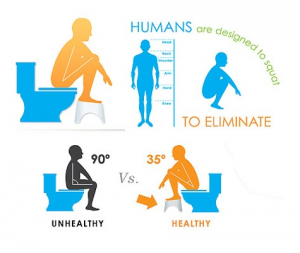During the growth period, a child has several milestones to meet. The child becomes increasingly capable and independent, given the right kind of environment and stimulus. Saying goodbye to diapers and nappies is one of the crucial milestones. Alas! It can be one of the most difficult tasks for the child as well as the parents.
It is essential for parents to pay proper attention to toilet training of their child as ignorance in this matter can lead to constipation. The worldwide prevalence of childhood constipation due to different causes in the general population ranges from 0.7% to 29.6%. In constipation a child may have fewer than 2 bowel movements a week or bowel movements with stools that are hard, dry, and small, making them painful or difficult to pass.
Usually between 1 ½ to 2 years of age, children show readiness to be potty trained. Some signs can help the parent to identify the ideal time to begin potty training of their child, e.g. when they start telling when they have soiled their nappy, when they show interest in others using the toilet, when they keep their nappies dry for longer period owing to increased bowel and bladder control, etc.
Out dated and harsh methods could make toilet training a stressful experience for the child and he/she may try to hide. Children who hide are more likely to have stool toileting refusal, constipation, stool withholding, and later completion of training. Stool withholding involves the child doing physical maneuvers in an attempt to avoid defecation. The parents must be gentle, patient and understanding towards the child. The child may not know how to sit properly on the toilet. The “squatty potty” position should be taught to allow ease in passing stools.
Children tend to suppress the urge to pass stools or urine when they are focused in play or activity. They may forget to pay a visit to the toilet. Doing this frequently can also lead to hard stools. Hence, it is important to teach the child to visit the toilet whenever there is an urge. When the child is put into the habit of going to the toilet every morning and/or evening, their body clock gets set accordingly and they develop good toilet habits.

Small children may find it difficult to explain their discomfort. Painful defecation is the primary precipitant of constipation during early childhood. Parents need to be vigilant so that there can be quick intervention and the risk that their child will develop persistent constipation or fecal soiling can be reduced.
A nutritionally balanced, fiber rich diet and sufficient water intake can go a long way in avoiding constipation.
In order to get effective treatment for their child, the parents should seek the help of a Proctologist/Colorectal surgeon rather than a pediatrician in case of constipation and related complications.


